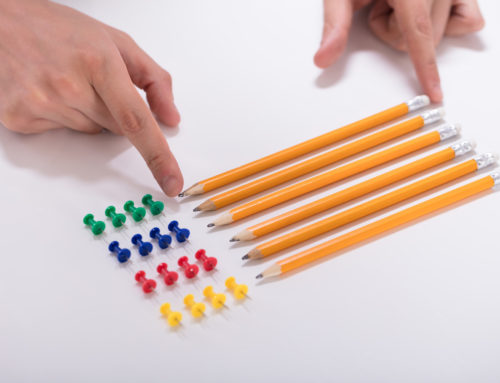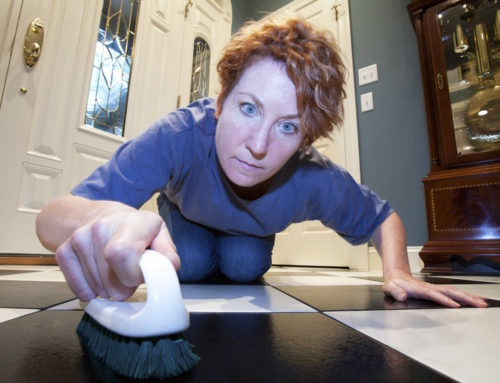Have you ever wondered if a neat-freak friend might be just a little OCD? We hear that phrase all time—“I’m OCD about tidiness” or timeliness or any number of things. But is that really Obsessive-Compulsive Disorder? We hear the term thrown around a lot, and we may use it to accuse friends of being overly fastidious, but OCD is in reality quite different from a love of neatness.
What is Obsessive-Compulsive Disorder?
Obsessive-Compulsive disorder is a common psychological disorder composed of two parts: uncontrollable, intrusive, distressing and anxiety-proving thoughts (obsessions) and ritualistic behaviors that reduce the anxiety caused by obsessions (compulsions).[1] It’s crucial to understand that without treatment, a person with OCD can’t just stop thinking obsessive thoughts. Likewise, without professional help, people with OCD cannot refrain from carrying out the behaviors that reduce their anxiety levels.
It’s also important to note that people don’t get to choose what their compulsions are. A person with OCD will feel drawn to perform behaviors that reduce their anxiety, which is the only measure by which they can attempt to control their obsessions. Common compulsions include washing one’s hands or body, counting things, or checking things.
For a person to be diagnosed with OCD, their symptoms must be causing sufficient disruption to harm their ability to live the way they want to, or cause significant physical or emotional distress. People with OCD may harm their hands by washing them dozens of times a day, for example, or perform laborious counting rituals that consume hours of their time.
Common Obsessions and Compulsions in OCD
These are only a few of the more common obsessions and their associated compulsions.
Obsessions
- Fear of dirt, germs, or contamination
- Intrusive feelings of being judged, particularly in reference to religion
- Unwanted sexual thoughts
- Unwanted thoughts of violence or violent imagery
- Feeling of a sudden loss of control over oneself and harming others or yourself
- Superstitions, identifying things as “lucky or “unlucky”
Compulsions
- Hand gestures, repeating words, hand tapping
- Excessive checking to make sure doors or windows are locked, stoves or electrical appliances are off or unplugged
- Excessive bathing or washing
- Excessive performance of religious rituals, including prayer
- Hoarding (accumulating useless junk)
How Do I know if Someone Has OCD?
People notice compulsions, as they’re visible behaviors. However, people with OCD often try to hide their compulsions when possible, as they’re aware their actions are unusual and fear derision. Be alert to behaviors that are performed to excess, or physical symptoms, such as a person having red, chapped hands (from washing), being late to appointments (from having to perform counting rituals, or checking multiple times to make sure all appliances are off).
OCD is treatable. Damaris Aragon, ARNP, BC provides a full spectrum of mental health care to people in Spokane, Washington, and surrounding areas. She focuses on providing personalized, compassionate care that adheres to current evidence-based standards. Reach out to Damaris through her contact page or calling 509-342-6592.
[1] https://www.nimh.nih.gov/health/topics/obsessive-compulsive-disorder-ocd/index.shtml





